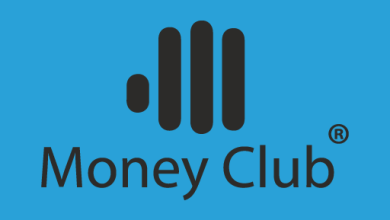Loan apps have become a popular way for Nigerians to access quick cash. These apps offer loans with flexible repayment terms and low interest rates, making them an attractive option for those in need of financial assistance. However, the convenience and accessibility of these apps come at a price. Many loan apps in Nigeria have been accused of harassing their borrowers through aggressive debt collection tactics.
Loan sharks, also known as loan app harassers, are individuals or companies that lend money at exorbitant interest rates and use coercive methods to recover their debts. In Nigeria, loan sharks have become a major problem, with many borrowers reporting harassment and intimidation.
How Loan Sharks Bully Their Victims
Loan sharks use a variety of tactics to bully their victims into paying up their loans. Some of the most common methods include:
- Constant Calls and Messages: Loan sharks bombard their borrowers with constant calls and messages, often using abusive language and threats. They may call multiple times a day, even during odd hours, making it difficult for the borrower to sleep or work.
- Intimidation: Loan sharks may use intimidation tactics to scare their borrowers into paying up their loans. They may threaten legal action, blacklisting from other financial institutions, or physical harm to the borrower or their family members.
- Guilt Trips: Loan sharks may try to guilt trip their borrowers into paying up their loans by reminding them of the benefits they received from the loan or by playing on their emotions. They may also try to make the borrower feel ashamed or embarrassed about not being able to pay back the loan.
- Collateral Collection: In some cases, loan sharks may demand collateral from their borrowers as a condition for the loan. If the borrower fails to repay the loan, the loan shark may seize the collateral without warning or notice.
Case Study: The Story of Chidinma’s Loan App Harassment

Chidinma is a 28-year-old graduate who took out a loan from a popular loan app in Nigeria to pay for her sister’s medical bills. She repaid the first installment on time but missed the second due to unforeseen circumstances. This was when the harassment began. The loan app started calling her multiple times a day, demanding that she repay the loan immediately. They threatened her with legal action and even went as far as calling her family members and friends, accusing them of being involved in her failure to repay the loan. Chidinma felt helpless and scared, not knowing what to do next. She eventually reached out to a lawyer who advised her to report the matter to the police and seek legal action against the loan app for harassment and intimidation. Her case is just one of many that highlight the need for stricter regulation of loan apps in Nigeria and more protection for borrowers against abusive debt collection practices.
How to stop loan app harassment
In recent years, the proliferation of loan apps in Nigeria has led to a surge in loan defaults and subsequent harassment by debt collectors. The situation has become so severe that the Central Bank of Nigeria (CBN) has issued several warnings to loan apps and debt collectors to adhere to regulatory guidelines or face sanctions.
How to Stop Loan App Harassment in Nigeria
- Understand Your Loan Terms: Before taking out a loan, it’s essential to read and understand the terms and conditions of the loan agreement. This will help you avoid misunderstandings and disputes with the lender. Ensure that you understand the repayment schedule, interest rate, and any penalties for late payments.
- Communicate with Your Lender: If you’re having difficulty making repayments, don’t ignore your lender’s calls or messages. Instead, reach out to them as soon as possible and explain your situation. Most lenders are willing to work with borrowers who are experiencing financial difficulties.
- Report Harassment: If you’re being harassed by a debt collector, report the incident to the relevant authorities. In Nigeria, you can report harassment to the Consumer Protection Council (CPC) or the Central Bank of Nigeria (CBN). Provide evidence such as call logs, text messages, or screenshots of social media messages to support your complaint.
Frequently Asked Questions and Answers
1. What is Loan App Harassment?
Loan app harassment refers to the use of aggressive or abusive tactics by debt collectors to recover outstanding loans from borrowers. This can include repeated phone calls, text messages, emails, or social media messages, even outside of normal business hours. Harassment can also include threats of legal action or physical harm.
2. What are My Rights as a Borrower?
As a borrower, you have certain rights under Nigerian law. These include:
- The right to be treated fairly and reasonably by your lender and debt collector.
- The right to be provided with clear and accurate information about your loan terms and conditions.
- The right to privacy and confidentiality regarding your personal information.
- The right to dispute any errors or inaccuracies in your loan statements or reports.
- The right to seek legal redress if your rights are violated by your lender or debt collector.
3. How Can I Protect Myself from Loan App Harassment?
To protect yourself from loan app harassment, you should:
- Only borrow from licensed lenders regulated by the CBN or other relevant regulatory bodies.
- Read and understand the terms and conditions of your loan agreement before signing it.
- Make timely repayments according to the agreed schedule.
- Communicate openly and honestly with your lender if you’re experiencing financial difficulties.
- Report any harassment or abuse by debt collectors to the relevant authorities immediately.
- Seek legal advice if you believe your rights as a borrower have been violated by your lender or debt collector.
Conclusion
Loan app harassment is a growing problem in Nigeria that requires urgent attention from regulators, lenders, and borrowers alike. By understanding our rights as borrowers, communicating openly with our lenders, and reporting any harassment to the relevant authorities, we can help put an end to this practice once and for all. Let us all work together to ensure that borrowing remains a responsible and fair financial option for all Nigerians in 2023 and beyond.






